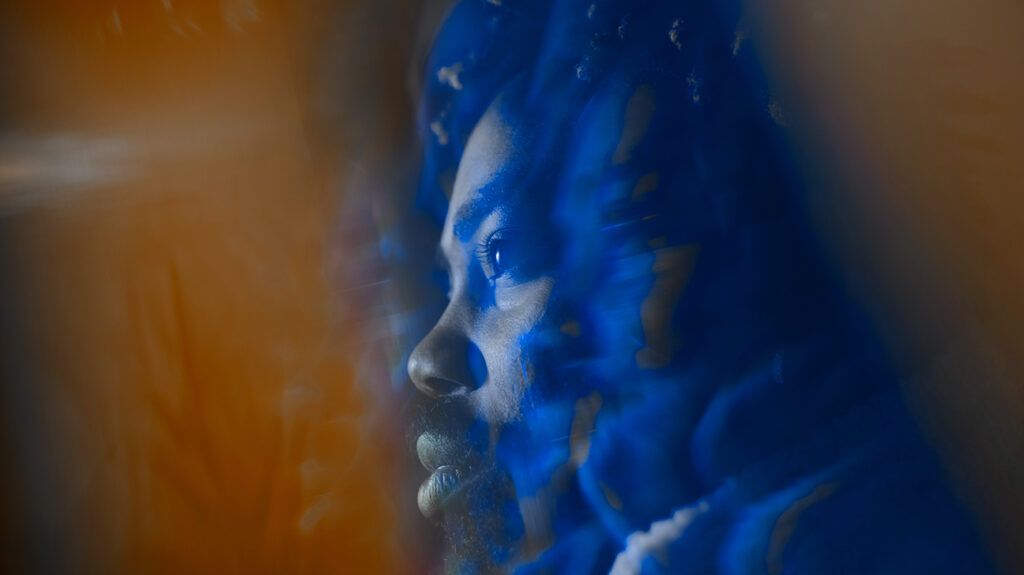The highs and lows of bipolar disorder can be more challenging to manage when symptoms of anxiety coexist. But they are manageable.

Anxiety is a natural human emotion. Most people experience it in response to stressful situations or ongoing turmoil.
When you live with bipolar disorder, you might feel anxiety about the condition and what it means for your relationships, career, and daily life.
Anxiety with bipolar disorder can signify more than just apprehension about symptoms, however. You may be experiencing both anxiety disorder as well as bipolar disorder, and both are manageable.
Anxiety vs. anxiety disorder
You can feel anxiety without experiencing a mental health condition.
When anxiety becomes intrusive and impairing, persisting even in the absence of a precursor and affecting basic function, it may then meet the criteria for anxiety disorder. Here’s a whole hub of resources for anxiety.
It’s estimated that
The two conditions have a high overlap, according to
Of all anxiety disorders, panic disorder
The exact link between anxiety and bipolar disorder isn’t clear, but researchers speculate inflammation in nerve cell pathways may be involved in both conditions.
Does anxiety cause manic episodes?
There’s no evidence to suggest manic episodes are directly caused by anxiety, though the two states can have similar symptoms of agitation and hypervigilance.
They may be so similar it can be challenging to differentiate if the symptoms you’re experiencing are anxiety versus bipolar disorder mania.
While anxiety may not cause mania, insomnia — regularly seen among those living with an anxiety disorder — is considered to be a significant trigger for mania episodes.
Research from 2016 has also noted that folks may be just as likely to experience anxiety after a manic episode as they are preceding a depressive episode.
Anxiety disorders are characterized by persistent, excessive anxiousness and fear almost every day for at least 6 months.
How your symptoms present can differentiate between which type of anxiety you may be experiencing.
The most common anxiety disorders include:
- generalized anxiety disorder
- panic disorder
- social anxiety disorder
- separation anxiety disorder
- obsessive-compulsive disorder
- post-traumatic stress disorder
- phobias
Anxiety and bipolar disorder are a combination
- panic disorder
- generalized anxiety disorder
- social anxiety disorder
Living with bipolar disorder suggests you experience extremely high and low mood shifts.
Elevated, agitated moods are known as episodes of mania, or, in a less severe form, hypomania.
Low moods are categorized as periods of depression.
The three primary forms of bipolar disorder are:
- Bipolar disorder I. Experiencing at least one episode of mania lasting at least 7 days, or severe enough to require hospital care. This form of bipolar disorder may or may not include periods of depression (lasting for 2 weeks or longer).
- Bipolar disorder II. Experiencing at least one major depressive episode lasting at least 2 weeks and at least one hypomania period present for at least 4 days. Mania episodes are often less severe compared to bipolar disorder I.
- Cyclothymic disorder. Episodes of hypomania and depression lasting for at least 2 years but not meeting the clinical severity required for bipolar disorder I or II.
Managing anxiety and bipolar disorder often requires the guidance of a mental health professional.
A clinician can help determine the best course of treatment for both conditions’ symptoms.
While you work with your healthcare team to meet treatment goals, you may be able to find ways to take the edge off your symptoms healthily.
Avoiding heavy use or misuse of alcohol and drugs
Before you reach for a substance thinking it will make you feel better, you may want to consider the long-term effects.
Alcohol and drugs can worsen symptoms of anxiety disorders and intensify bipolar disorder symptoms.
Revisiting your sleep hygiene
Insomnia is a known trigger for manic episodes in bipolar disorder, which may in turn lead to periods of anxiety.
Improving your sleep hygiene may help limit the nights you spend lying awake in bed.
Sleep hygiene tips include:
- avoiding electronics before bed
- being physically active during the day
- keeping your room cool, dark, and quiet
- skipping large meals, caffeine, and alcohol before bed
Finding balance wherever you can
When you live with anxiety and bipolar disorder, it can feel difficult to laugh and feel joy when you’re unsure of what mental health episode resides around the corner. But finding little ways to embrace fun and humor, whenever possible, may help you manage the anxiety you feel.
Positive forms of humor have been linked to lower levels of worry and increased well-being.
Crafting a consistent routine
A sound routine for managing bipolar disorder can provide structure, comfort, and balance. You can even incorporate a nightly entry in a “mood journal” to help track your symptoms and changes.
A
Embrace support networks
You don’t have to take the anxiety and bipolar disorder journey alone.
If you’re feeling anxious or concerned, sometimes talking it through with people who understand can help take some of the burdens off your shoulders.
A 2018 literature review shows strong evidence in favor of support networks, including groups that are:
- professionally facilitated
- family-led
- educational-based
- program-based
If you’re not ready to speak with people you aren’t familiar with, you can start building your own support network with trusted family and friends.
Anxiety and bipolar disorder can occur simultaneously. While these conditions can exacerbate each other, they can be managed at the same time.
If you’re experiencing impairing symptoms of anxiety and bipolar disorder, speaking with a therapist, and the comradery of similarly diagnosed folks in an online support group may help.
